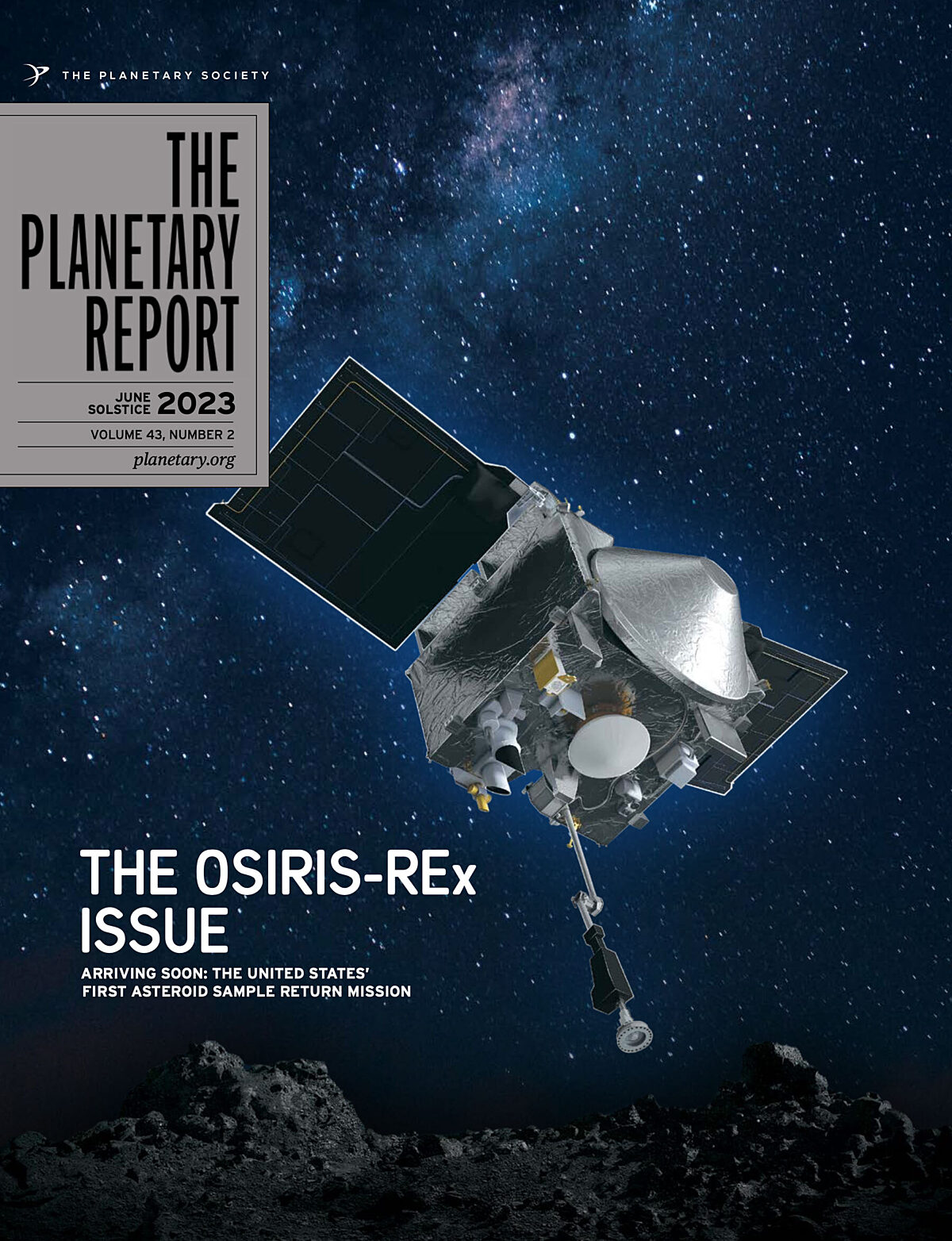Your impact: June solstice 2023
The planetary defense conference
Every two years, the world’s leading experts in planetary defense gather at the Planetary Defense Conference to discuss and advance their work to protect Earth from asteroids and comets. The experts’ fields range from science to technology development to policy to public education and more. Thanks to the support of our members, The Planetary Society is a longtime sponsor and participant in the conference.
This year’s Planetary Defense Conference took place in Vienna, Austria, in April. Planetary Society Chief of Space Policy Casey Dreier attended to give a presentation about the history of NASA’s planetary defense budget. In keeping with past years, The Planetary Society also organized a public event: a special screening of the IMAX original film “Asteroid Hunters” followed by a Q&A with an international group of scientists and planetary defense experts, moderated by Planetary Radio creator Mat Kaplan. This was a valuable opportunity not only for those in attendance but for the Society as a whole as we continue to broaden our international reach and relevance in protecting Earth from asteroids and comets.
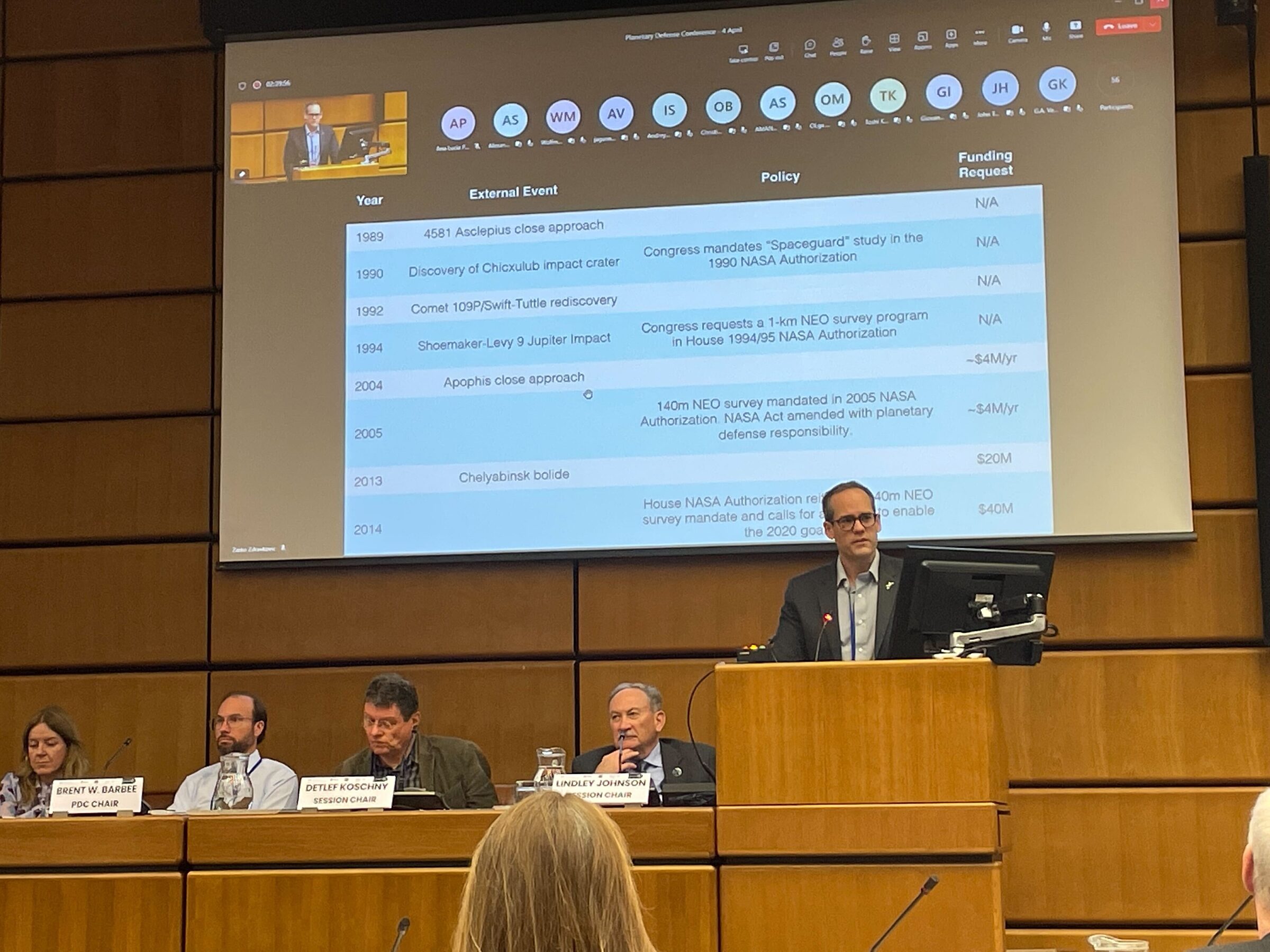
Meet the newest STEP Grant winners
The Planetary Society’s Science and Technology Empowered by the Public (STEP) Grants were introduced in 2021 to support projects that advance our core interests of exploring other worlds, finding life, and defending Earth from dangerous asteroids. The first two grants were awarded in 2022, and today, we are proud to announce the second set of winners.
The Planetary Society is thrilled to announce the 2023 awardees of the Science and Technology Empowered by the Public (STEP) Grants. Selected through an open international competition, the recipients are Dr. Andrew Palmer, leading a project to evaluate food production systems for deep space exploration, and Dr. Jacob Buffo, who will investigate hypersaline lakes that serve as analogs for various planetary bodies.
Dr. Palmer’s team from the Florida Institute of Technology received $50,000 USD to compare the growth of three types of food plants in hydroponics and regolith environments in an effort to understand which method would best support long-term space travel. The project aims to address gaps in knowledge about the most sustainable and productive solutions for deep space agriculture.
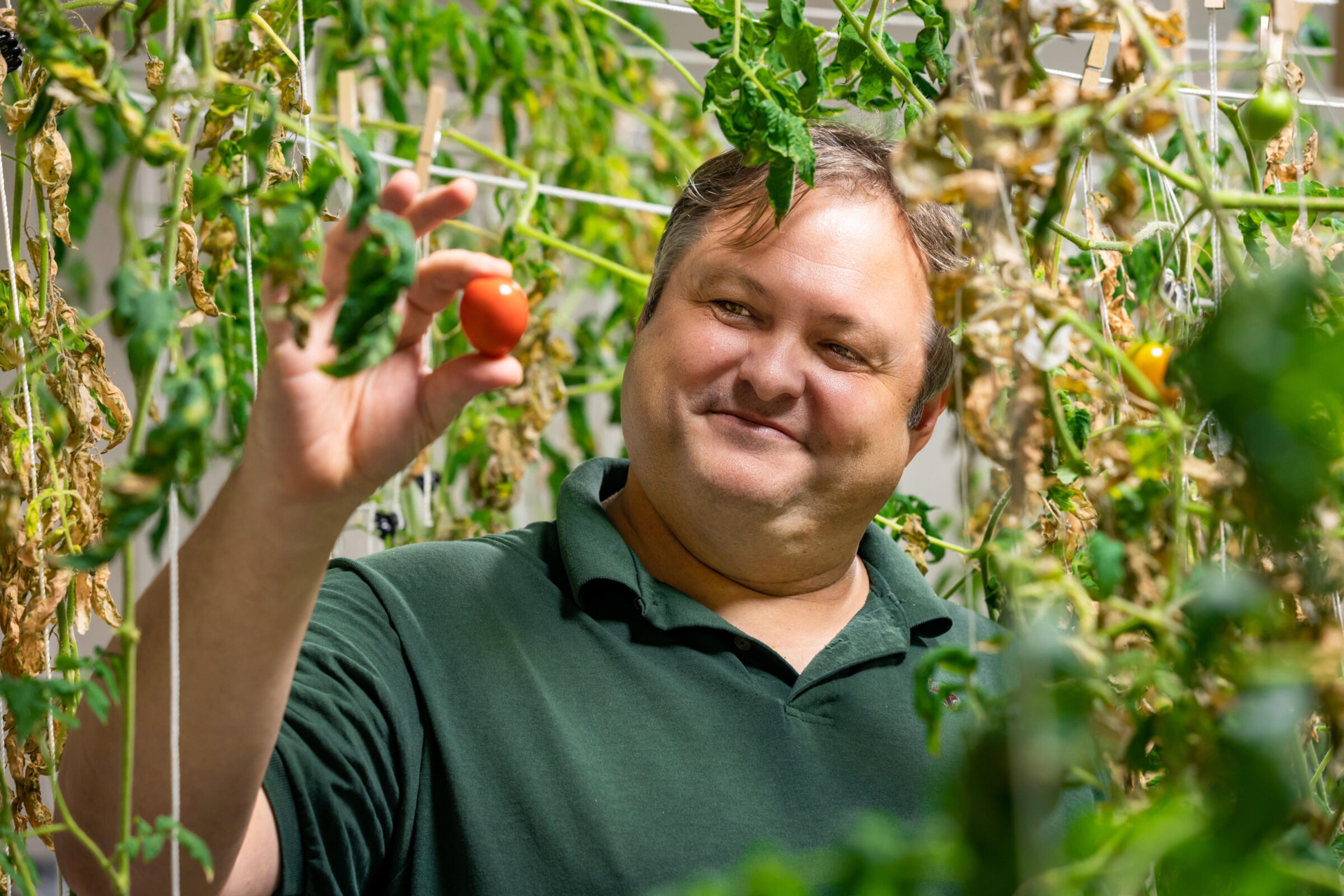
Dr. Buffo’s team from Dartmouth College has been granted $49,284 USD to carry out a detailed examination of several small, extremely salty lakes in British Columbia, Canada. These hypersaline lakes will provide valuable insights on the existence of liquid water on other planets and inform our understanding of their habitability.
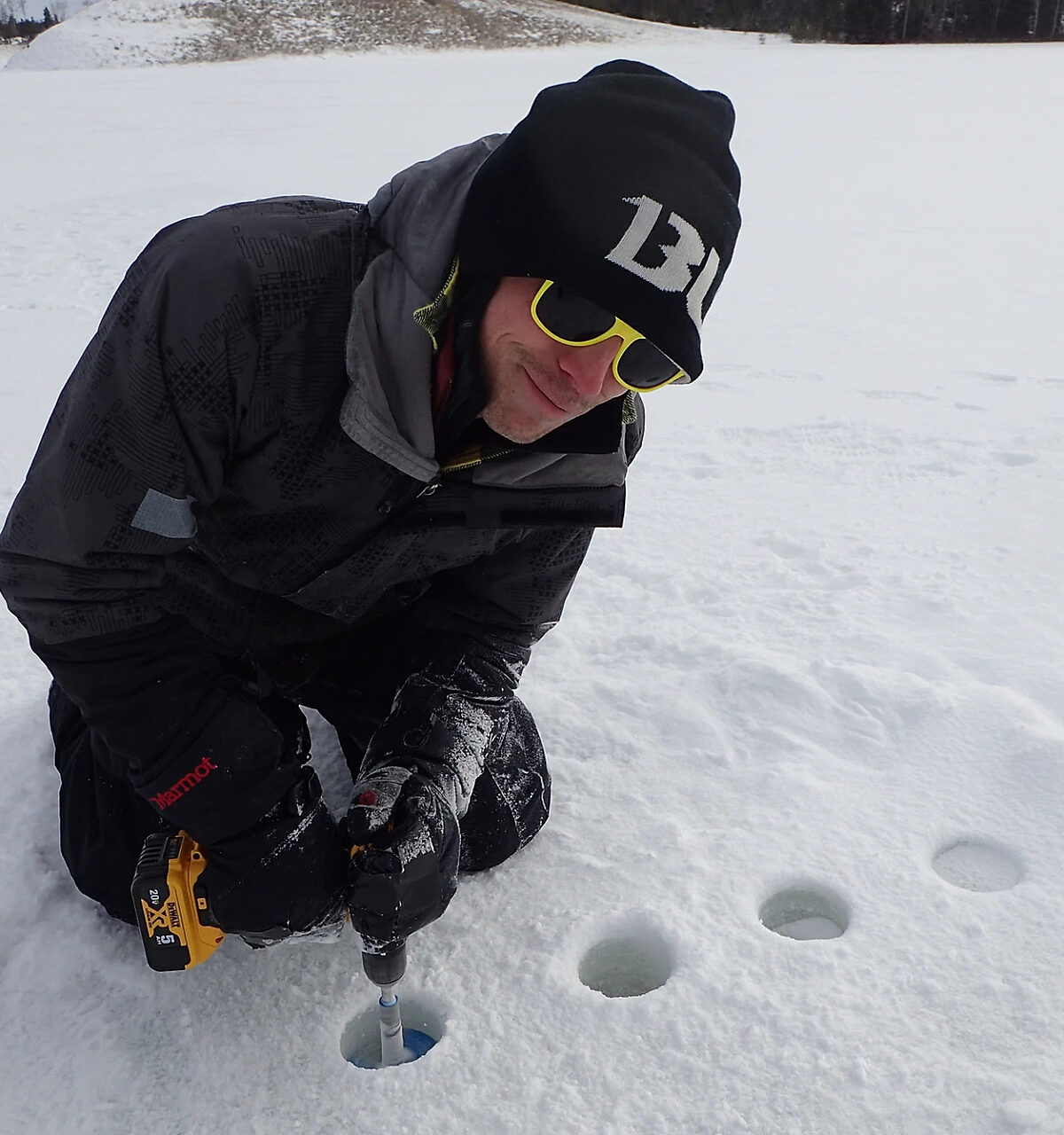
Both projects will make excellent use of the STEP Grant funding by supporting students, purchasing necessary supplies, and covering travel and shipping costs. The teams eagerly look forward to sharing their findings with The Planetary Society members and the public.
We are grateful to the Halıcıoğlu Family Foundation for its generous support of the development and implementation of the STEP Grants program.
A new batch of Shoemaker Grant winners
In 1997, our members and supporters helped us launch the Shoemaker Near-Earth Object Grant program to fund amateur and professional asteroid observers. Thanks to the support of members like you, the program has awarded $515,000 to date to 70 winners in 21 countries on six continents. Shoemaker NEO Grant winners do crucial work finding, tracking, and characterizing asteroids and typically have existing telescope facilities and prior observing experience but need additional funding for hardware improvements to take their work to the next level.

By the time this issue of The Planetary Report goes to press, a new set of grant winners will have been selected. Look for our announcement on Asteroid Day, June 30, at planetary.org and remember that your membership makes this program possible.
A solar sailing legacy continues
Although The Planetary Society’s crowdfunded solar sailing spacecraft, LightSail 2, has now completed its mission and burned up in Earth’s atmosphere as planned, the work is not yet over. The project lives on after the spacecraft’s end thanks to all that we learned from LightSail 2’s three years in orbit. The Planetary Society continues to share this hard-earned solar sailing wisdom with others who are pursuing this innovative propulsion technology.
This June, Bruce Betts, chief scientist and LightSail program manager, participated in the sixth International Symposium on Space Sailing in New York City, sharing the results of our successful mission and the lessons it taught our mission team about using solar sails to propel CubeSats. Stay tuned for more information later this summer about additional exciting projects to extend LightSail’s legacy.
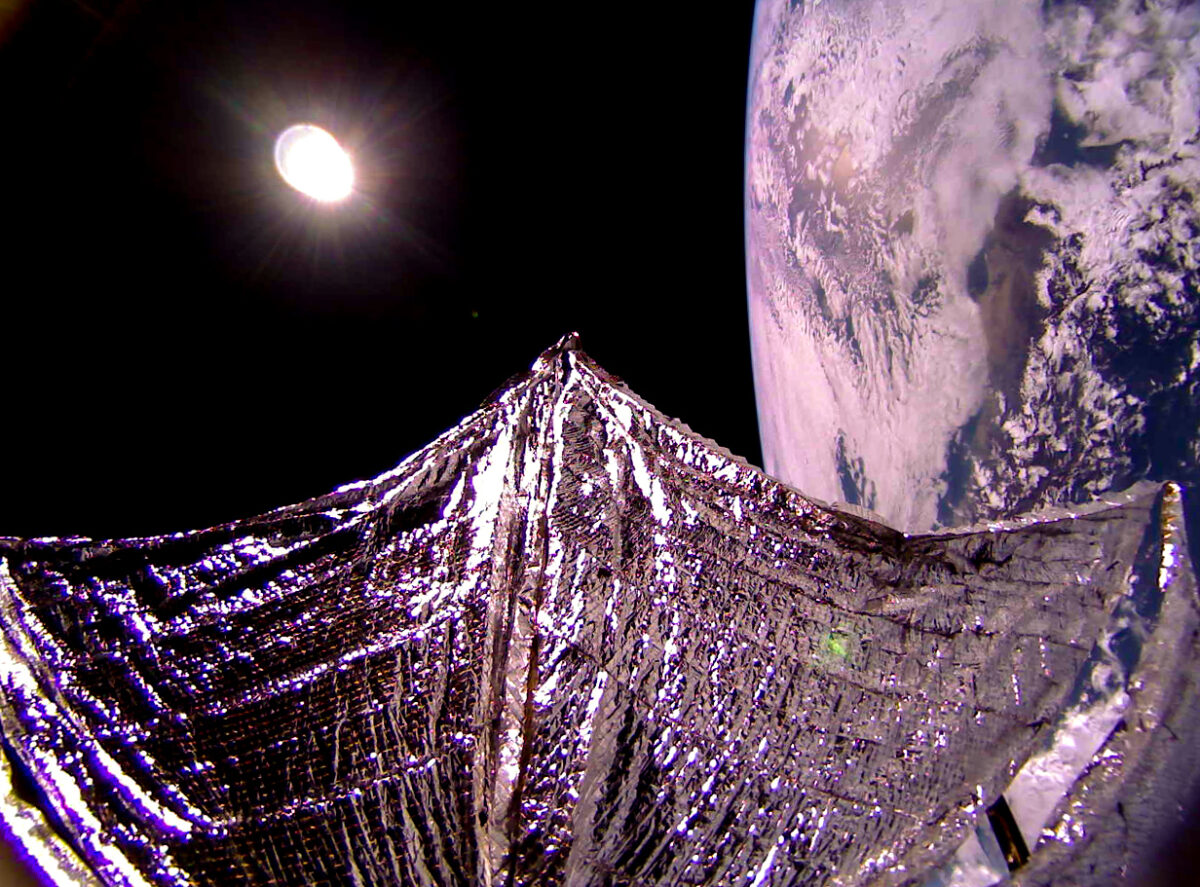
A digital day of action
Having pivoted away from in-person advocacy events during the COVID-19 pandemic, The Planetary Society found that virtual events made it possible to engage more people than ever before. Even though in-person meetings are possible again, we are committed to continuing to provide our members with meaningful opportunities to advocate for space from home.
On April 18, The Planetary Society hosted an entirely virtual version of our Day of Action, empowering hundreds of advocates in the United States to speak up for space science and exploration. We provided advocacy training, educational resources about the missions we’re focusing on this year, talking points to share with leaders in government, letters to send to Congress, and more. Members advocated for NASA’s VERITAS mission to Venus, the Mars Sample Return Program, and the NEO Surveyor planetary defense mission.
On Sept. 17-18 of this year, we will also resume our in-person Day of Action, for which space advocates from across the United States travel to Washington, D.C., to meet with their representatives in Congress and speak about the importance of investing in planetary science and exploration. Learn more at planetary.org/dayofaction.
The Planetary Report • June Solstice
Help advance space science and exploration! Become a member of The Planetary Society and you'll receive the full PDF and print versions of The Planetary Report.


 Explore Worlds
Explore Worlds Find Life
Find Life Defend Earth
Defend Earth


